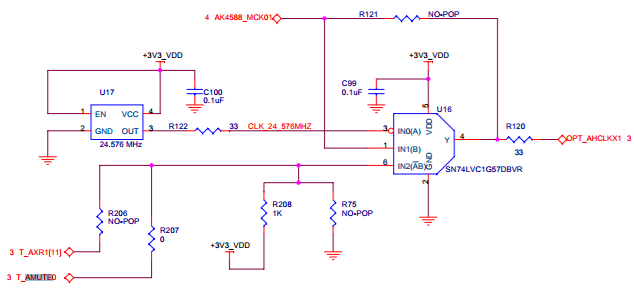Dear Champs,
My customer requested to know how they can allocate more DMA channels when they will use additional McASP ports for other audio I/O.
e.g. they want to implement receiving audio channels through both of McASP1 and McASP0(AXR0[9]), and transmit it through both of McASP1 and McASP2(DIT).
Could you please let me know how they can add DMA channels for additional McASP0 and McASP2 processing?
Thanks and Best Regards,
SI.


